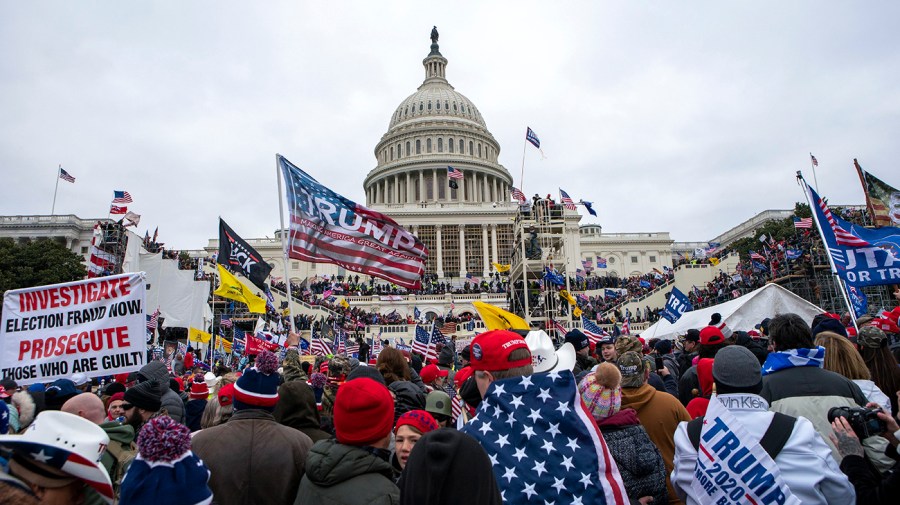
President-elect Trump has said repeatedly that he plans to pardon January 6 protesters on his first day in office. Should he? If so, which ones?
A broad presidential pardon power made sense in the 18th century because the criminal justice system and its appellate review process was ragged and unreliable. Presidential clemency provided a backup to catch errors. Today, the criminal justice review process is sophisticated — a multilevel close inspection of every appeal. In addition, administrative procedures within the Federal Bureau of Prisons take account of special cases of unforeseen circumstances such as serious illness.
Does there remain any legitimate reason for keeping presidential pardons? Perhaps. But the cases for which it is needed are very limited indeed.
Too often, the pardon power has been abused for political and personal reasons. Former President Clinton, in order to help his wife to get the Puerto Rican vote in a key state for her election run, pardoned a group of terrorists convicted of political bombings. Similarly, Clinton pardoned his half-brother after his conviction on drug-related charges, and billionaire Mark Rich, who had fled the country after being accused of tax evasion and fraud.
Similarly, when President Obama was unsuccessful in pushing the Congress to decriminalize certain drug use, he simply used his pardon power to achieve the same political end by pardoning an entire class of offenders. He also pardoned the still-unrepentant Oscar Lopez Rivera, who helped lead bombings that killed six in Puerto Rican. And President Biden promised during the presidential campaign to not pardon his son, but after he lost his reelection bid, he did so anyway.
How can the stream of pardon abuses help America or promote the notion of democracy as the best path to fairness and stability in a chaotic world?
What may be even more concerning than these abuses of the pardon power is the current Biden discussion of granting “blanket pardons” to persons even before they are charged with an offense, or even before any official investigation is undertaken. Giving a pardon to an undeserving convicted offender only short-circuits the just punishment process for that offender; giving a pardon before conviction or even before charges are brought subverts the criminal justice process generally. It means there may be no investigation to determine the facts, leaving citizens to wonder what unsavory truths are being hidden and encouraging conspiracy theorists to tell whatever story they like, never to be contradicted.
If he provided clemency to the protesters, would Trump be simply continuing the long line of presidential pardon abuse? Not necessarily. Neither of the two most common forms of abuse would seem to apply here. He would not be providing pardons to buy votes — he is already elected and cannot run for reelection. Nor would he be using the pardon power to short-circuit legislative policymaking. There is no legislative lawmaking issue at stake.
On the other hand, neither is there a strong indication that the prosecutions and sentences have been driven by political lawfare producing unjust results. Of the 10,000 protesters, 2,500 of whom entered the Capitol, only 1,600 were charged. Of the thousand or so cases fully adjudicated as of early November, only 645 — most for serious offenses — resulted in incarceration and 143 in home detention. Many thoughtful people sympathetic to much of Trump’s political agenda are likely to believe that the sentencing of the protesters has been just and nonpolitical — a view expressed by Judge Royce Lamberth, a Reagan appointee involved in the sentencing.
If Trump is to put “America First,” he ought to use his authority to pardon only those protesters for whom the community would agree they have been treated unjustly. And there may be very few of those. If he passes up this obvious opportunity to abuse the pardon power for political purposes, he would be distinguishing himself from his critics who have so frequently reveled in their lawfare. By his restraint, he would make clear that he is not the threat to justice and democracy that they have been.
Paul H. Robinson is the Colin S. Diver Professor of Law at the University of Pennsylvania and most recently the author, with Jeffrey Seaman and Muhammad Sarahne, of “Confronting Failures of Justice: Getting Away with Murder and Rape.”












